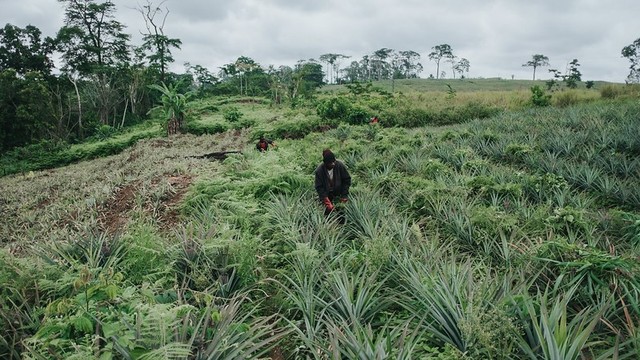Reflections on Katowice – where does the Paris Agreement stand now?
IIED's director Andrew Norton reflects on the outcomes of the UN climate talks in Katowice.


The closing plenary of the COP24 climate talks (Photo: UNclimatechange, CC BY-NC-SA 2.0)
The UN climate talks in Katowice, Poland (COP24) were always going to be tough, given some difficult technical challenges that had to be addressed, plus the disruptive presence of a US federal government committed to withdrawing from the Paris Agreement, but still present in the negotiations to disruptive effect.
It would, however, be a mistake not to recognise what was achieved. Agreement on the Paris ‘rulebook’, albeit with significant gaps, is a major achievement, and was not guaranteed going in to COP24, or through much of the negotiation itself.
There does not seem to be much to celebrate when the world is still heading for 3°C rise above pre-industrial temperatures at the end of the century – not the 1.5°C that Paris, the science and basic social justice all demand.
The great failure at Katowice was in the area of ambition to get the unfolding disaster of climate breakdown under some sort of control. There was precious little sign of countries with big emissions footprints stepping up to increase the strength of their effort to reduce greenhouse gas emissions in the immediate future. And the significance of the Talanoa Dialogue – the process designed to encourage countries to increase the ambition of their climate action plans – was not strongly recognised.
The failure of COP24 to unequivocally welcome the Intergovernmental Panel on Climate Change’s authoritative and comprehensive report on the implications of going beyond the more ambitious Paris target of 1.5 degrees was also deeply disappointing.
The report demonstrates that every bit of warming matters, and that the consequences of delaying action to decarbonise energy, industry, infrastructure, and land management systems are disastrous. The less stringent Paris Agreement target of 2°C is far from a safe guardrail for planetary warming, and the difference between 1.5° and 2°C has devastatingly real implications for many households, communities, towns and even whole countries.
The four countries that prevented the climate talks from clearly welcoming the report and embracing its policy conclusions – the United States, Russia, Saudi Arabia and Kuwait – have put the interests of their oil and gas industries ahead of a safe and just future for people and planet.
But the political dynamics at Katowice were not all negative. A strong coalition of progressive countries emerged during the negotiations, including the Least Developed Countries, Small Island Developing States, the Independent Latin American Countries and the European Union. As a result of the efforts of this group, progress was made in many areas that exceeded expectations going in to COP24. Language emerged on the 1.5°C report which, though not ideal, maintains its significance as a landmark statement on the urgency of climate action.
So what was achieved?
Above all, the rulebook for the Paris Agreement was agreed. The fundamental element of the Paris Agreement is to establish transparency on country efforts in all key areas – mitigation, adaptation and climate finance.
This transparency allows for people to see what countries are doing beyond their leaders’ rhetoric – and therefore judge whether that is enough, and ask for more if it is not.
In the long term this is where hope for an acceleration in government action to tackle climate change that is sufficient to meet the scale of the challenge will come from. Measures to ensure this, however, apply from the second set of Paris Agreement national action plans (NDCs), which means this step up in transparency will not kick in until 2024. As the IPCC 1.5°C report makes clear – each time action is delayed it is damaging.
Increasingly, as Greta Thunberg, the 15-year-old climate champion from Sweden, pointed out in the speech of the conference the problem is being shifted to our children.
Much remains to be done. UN Secretary General Antonio Guterres put all his weight behind the success of COP24 and the summit he has called for in September next year is a key milestone to build momentum for COP25 in Chile in December.
Important elements of the Paris rulebook have been deferred to then, most notably in the area of ‘market mechanisms’ – the arrangements for countries to trade emissions reduction efforts across country boundaries. The issue of the recognition in climate negotiations of loss and damage resulting from climate impacts will continue to be a high-profile area and of great concern to the Least Developed Countries.
Climate finance to support low income countries to build resilience and develop their own low carbon solutions is another area where more progress needs to be made. Above all there is an urgent need to do more to drive the transitions in energy, land, infrastructure and industry, which are necessary to prevent the world from passing into dangerous levels of warming.
This, of course, is not just a matter for national governments. Stakeholders at all levels, including civil society, business, investors, financial regulators, municipalities and local governments also need to drive action.
From IIED’s perspective, we will continue to support the Least Developed Countries Group in their efforts to promote ambition, resilience and climate justice. We will support them to take climate action in all fields and beyond the climate negotiations. Globally the voice of the climate vulnerable is not yet strong enough and needs to be heard.



